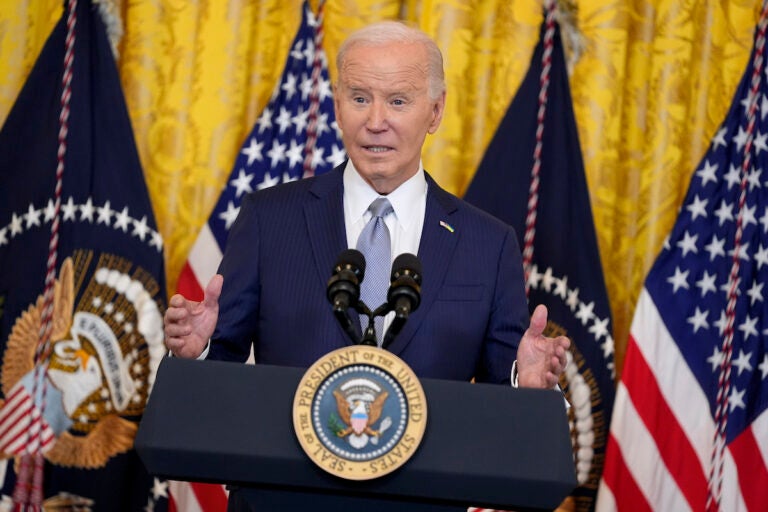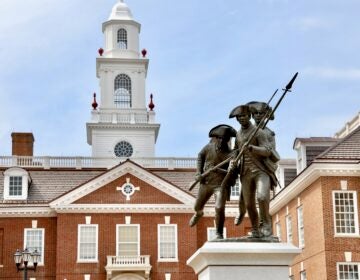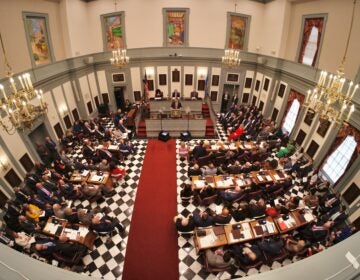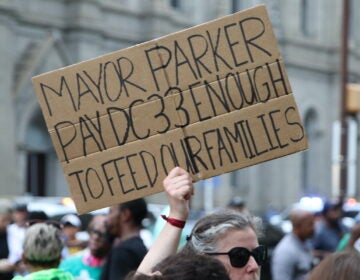Regulator would cap credit card late fees at $8, part of Biden’s campaign against junk fees
The Consumer Financial Protection Bureau says the average credit card late fee is $32.

File photo: President Joe Biden speaks in the East Room of the White House, Feb. 23, 2024, in Washington. Biden is forming a new ''strike force'' to crack down on illegal and unfair pricing on things like groceries, prescription drugs, health care, housing and financial services. (AP Photo/Evan Vucci, File)
The Biden administration announced a rule Tuesday to cap all credit card late fees, the latest effort in the White House push to end what it has called junk fees and a move that regulators say will save Americans up to $10 billion a year.
The Consumer Financial Protection Bureau’s new regulations will set a ceiling of $8 for most credit card late fees or require banks to show why they should charge more than $8 for such a fee.
The rule would bring the average credit card late fee down from $32. The bureau estimates banks brought in roughly $14 billion in credit card late fees a year.
“In credit cards, like so many corners of the economy today, consumers are beset by junk fees and forced to navigate a market dominated by relatively few, powerful players who control the market,” said Rohit Chopra, director of the bureau, in a statement.
President Joe Biden planned to highlight the proposal along with other efforts to reduce costs to Americans at a meeting of his competition council on Tuesday. The Democratic president is forming a new strike force to crack down on illegal and unfair pricing on things like groceries, prescription drugs, health care, housing and financial services.
The strike force will be led by the Justice Department and the Federal Trade Commission, according to a White House statement.
The Biden administration has portrayed the White House Competition Council as a way to save people money and promote greater competition within the U.S. economy.
The White House Council of Economic Advisers produced an analysis indicating that the Biden administration’s efforts overall will eliminate $20 billion in annual junk fees. The analysis found that consumers pay about $90 billion a year in junk fees, including for concerts, apartment rentals and auto dealers.
The effort appears to have done little to help Biden politically ahead of this year’s presidential election. Just 34% of U.S. adults approve of Biden’s economic leadership, according to a new survey by The Associated Press-NORC Center for Public Affairs Research.
Sen. Tim Scott, R-South Carolina, criticized the CFPB cap on credit card late fees, saying that consumers would ultimately face greater costs through higher interest rates and less access to credit.
“It will decrease the availability of credit card products for those who need it most, raise rates for many borrowers who carry a balance but pay on time, and increase the likelihood of late payments across the board,” Scott said.
Americans held more than $1.05 trillion on their credit cards in the third quarter of 2023, a record, and a figure certain to grow once the fourth-quarter data is released by the Federal Deposit Insurance Corp. next month. Those balances are now carrying interest on them, which is the highest it has been since the Federal Reserve started tracking the data back in the mid-1990s.
Further, more Americans are falling behind on their credit card debts as well. Delinquency rates at the major credit card issuers such as American Express, JPMorgan Chase, Citigroup, Capital One and Discover have been trending upward for several quarters. Some analysts have become concerned Americans, particularly poorer households hurt by inflation, might be taking on too much debt.
“Overall, the consumer is credit healthy. However, the reality is that there are starting to be some significant signs of stress,” said Silvio Tavares, president and CEO of VantageScore, one of the country’s two major credit scoring systems, in an interview last month.
The growth of the credit card industry is partly why Capital One announced it would buy Discover Financial last month for $35 billion. The two companies, which are two of the largest credit card issuers, are also two companies whose customers regularly carry a balance on their accounts.
This is not the first time policymakers have weighed in on credit card fees. Congress in 2010 passed the CARD Act, which banned credit card companies from charging excessive penalty fees and established clearer disclosures and consumer protections.
The Federal Reserve issued a rule in 2010 that capped the first credit card late fee at $25, and $35 for subsequent late payments, and tied that fee to inflation. The CFPB, which took over the regulation of the credit card industry from the Fed after it was established, is proposing going further than the Fed.
The bureau’s proposal is similar in structure to what the bureau announced in January when it proposed capping overdraft fees to as little as $3. In that proposed regulation, banks would be required to either accept the bureau’s benchmark or show regulators why they should charge more, a method that few bank industry executives expect to use.
Biden has made the elimination of junk fees one of the cornerstones of his administration’s economic agenda heading into the 2024 election. Fees that banks charge customers have been at the center of that campaign, and the White House directed government regulators last year to do whatever is in their power to further curtail the practice.
In another move being highlighted by the White House, the Agriculture Department said it has finalized a rule to stop what it deems to be deceptive contracts by meat processors and to ban retaliation against small farmers and ranchers that work together in associations.
WHYY is your source for fact-based, in-depth journalism and information. As a nonprofit organization, we rely on financial support from readers like you. Please give today.





